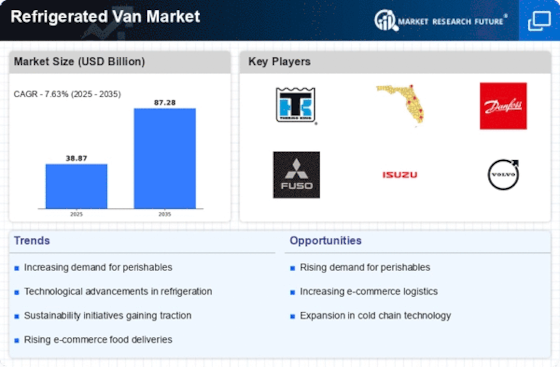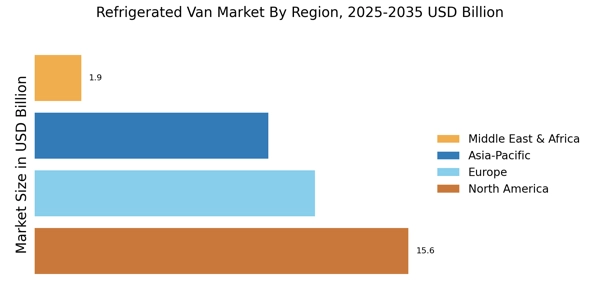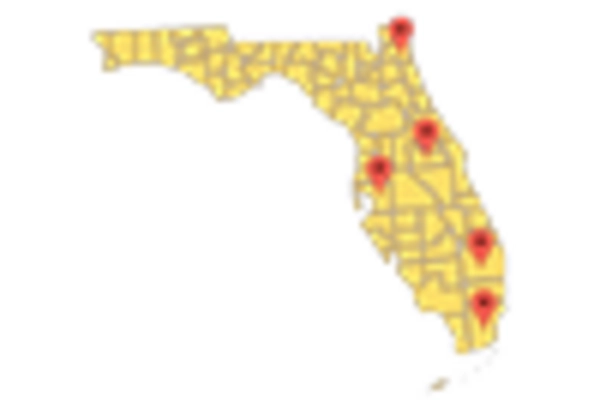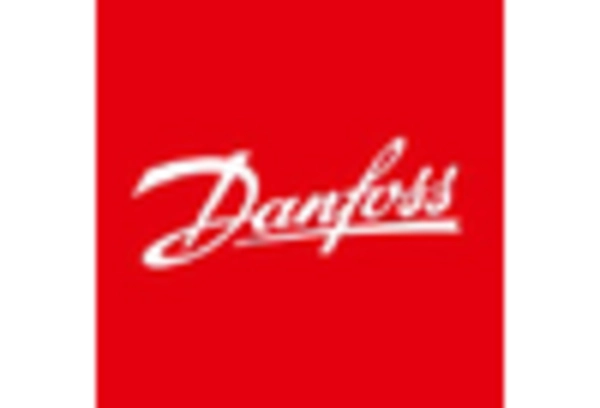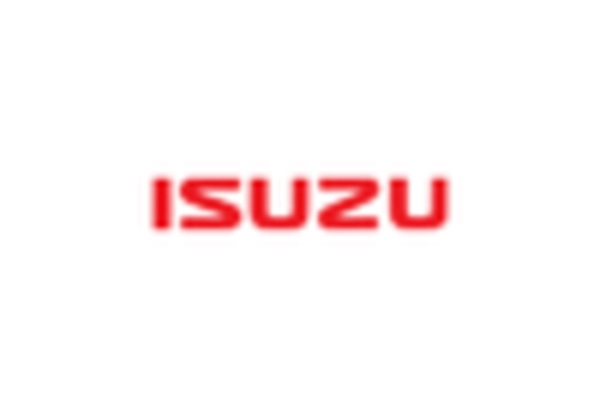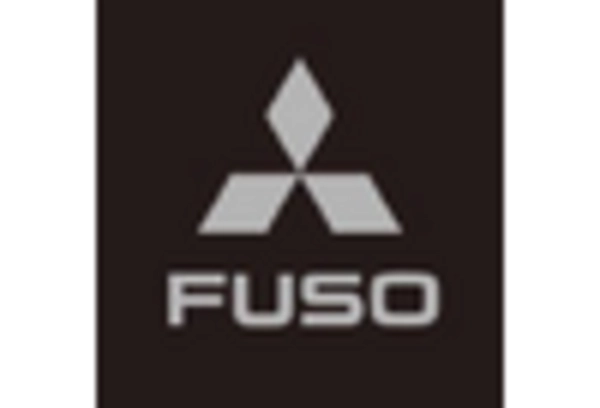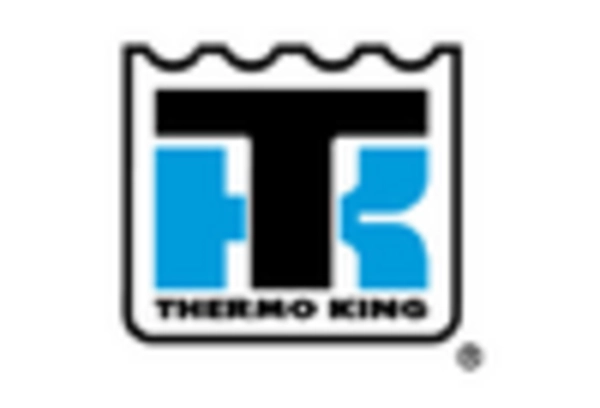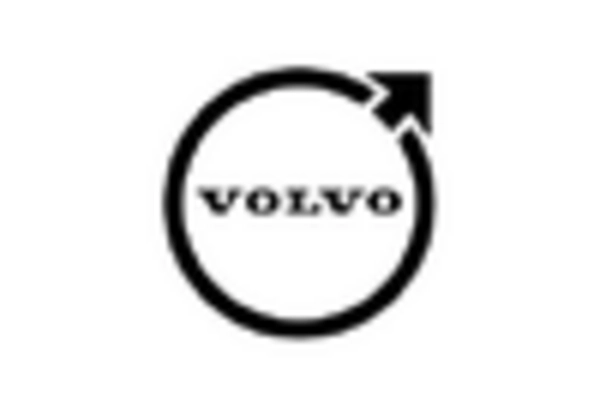Growth of Online Grocery Shopping
The rise of online grocery shopping is significantly impacting the Refrigerated Van Market. As consumers increasingly turn to e-commerce platforms for their grocery needs, the demand for efficient and reliable refrigerated delivery services is surging. Recent statistics indicate that online grocery sales are expected to exceed 100 billion dollars by 2025, necessitating a robust logistics framework to support this growth. Refrigerated vans play a crucial role in ensuring that perishable items reach consumers in optimal condition. Consequently, the Refrigerated Van Market is likely to expand as retailers invest in refrigerated transport solutions to meet the evolving demands of online shoppers.
Expansion of Pharmaceutical Logistics
The pharmaceutical sector's growth is significantly influencing the Refrigerated Van Market. With the increasing need for temperature-sensitive medications and vaccines, the demand for refrigerated transport solutions is on the rise. The pharmaceutical logistics market is expected to reach a valuation of over 100 billion dollars by 2026, highlighting the critical role of refrigerated vans in maintaining the integrity of medical products. This sector's expansion necessitates stringent temperature control during transportation, thereby propelling the Refrigerated Van Market forward. As healthcare providers and pharmaceutical companies prioritize safe delivery, the reliance on refrigerated vans is likely to intensify.
Rising Demand for Fresh Food Delivery
The increasing consumer preference for fresh and organic food products is driving the Refrigerated Van Market. As more individuals seek out fresh produce, dairy, and meat products, the need for efficient transportation solutions becomes paramount. According to recent data, the demand for refrigerated transport is projected to grow at a compound annual growth rate of approximately 7% over the next five years. This trend indicates that businesses are investing in refrigerated vans to ensure the quality and safety of perishable goods during transit. Consequently, the Refrigerated Van Market is likely to experience substantial growth as companies adapt to meet consumer expectations for freshness and quality.
Technological Innovations in Refrigeration
Technological advancements in refrigeration systems are reshaping the Refrigerated Van Market. Innovations such as energy-efficient cooling systems and IoT-enabled temperature monitoring are enhancing the operational efficiency of refrigerated vans. These technologies not only reduce energy consumption but also ensure that temperature-sensitive goods are transported under optimal conditions. The integration of smart technology is expected to improve logistics management, thereby increasing the reliability of refrigerated transport. As businesses seek to optimize their supply chains, the Refrigerated Van Market is poised for growth, driven by the adoption of these cutting-edge technologies.
Regulatory Compliance and Food Safety Standards
The stringent regulatory environment surrounding food safety is a key driver for the Refrigerated Van Market. Governments worldwide are implementing rigorous standards to ensure the safe transportation of perishable goods. Compliance with these regulations necessitates the use of refrigerated vans equipped with advanced temperature control systems. As businesses strive to meet these legal requirements, the demand for reliable refrigerated transport solutions is likely to increase. This trend underscores the importance of maintaining food safety throughout the supply chain, thereby propelling the Refrigerated Van Market as companies invest in compliant transportation methods.


